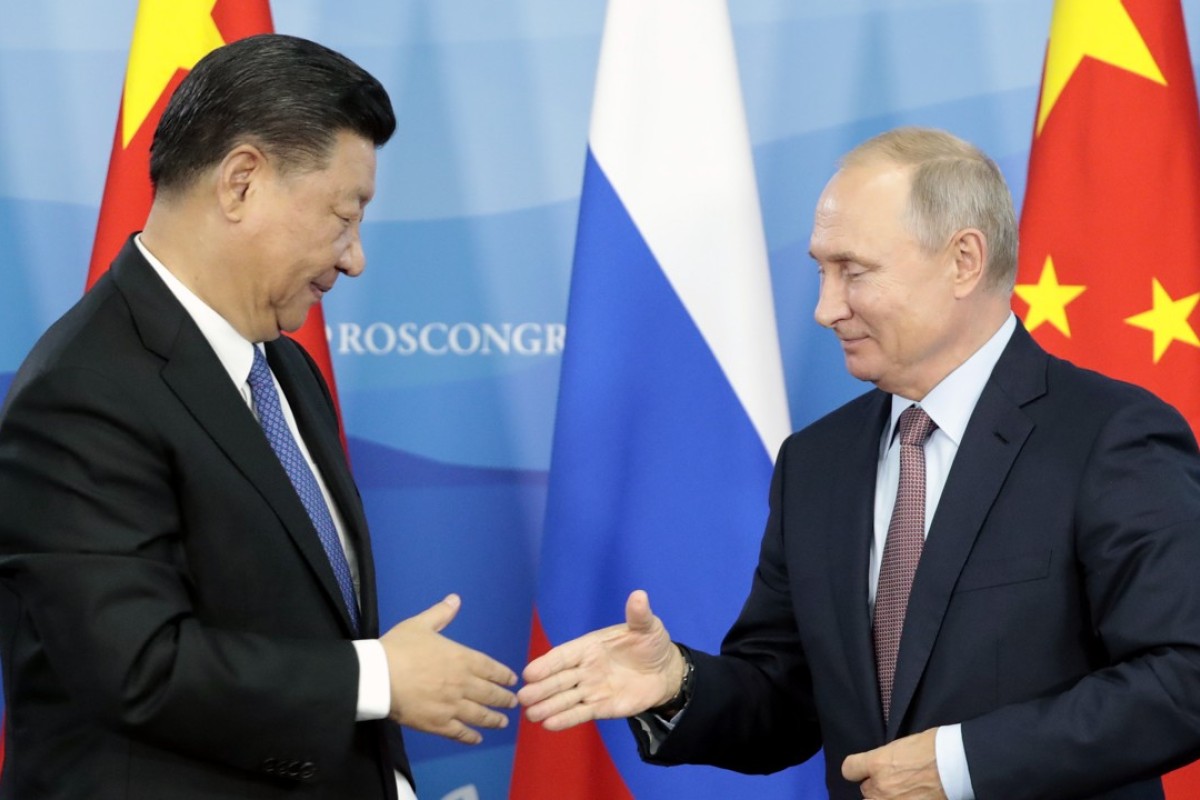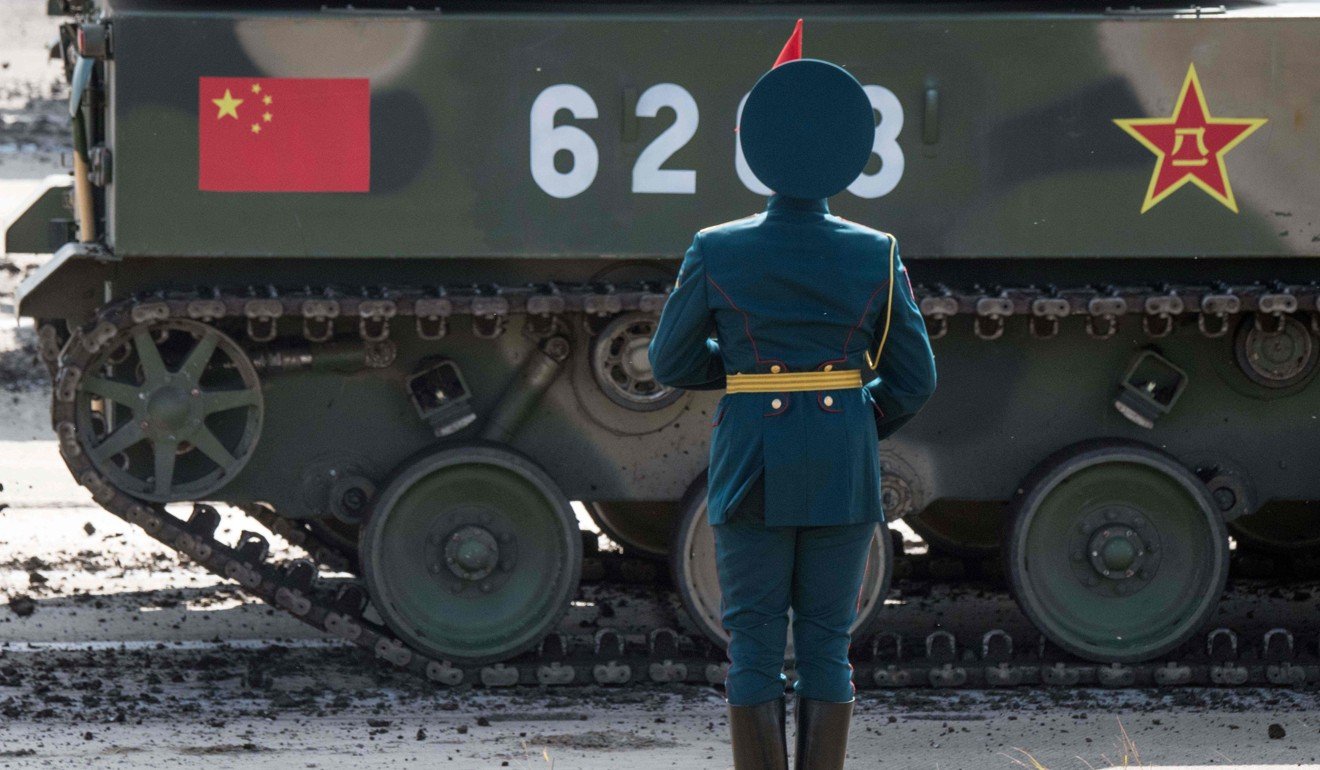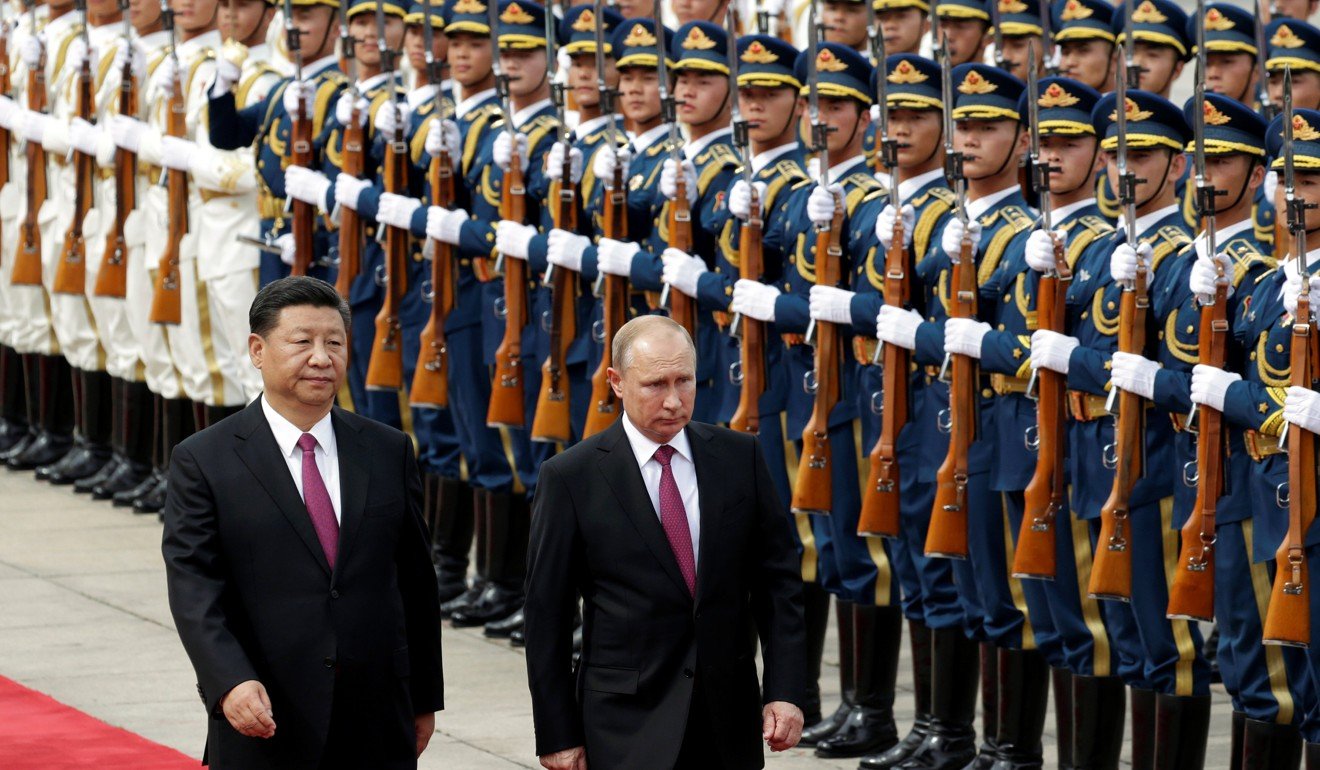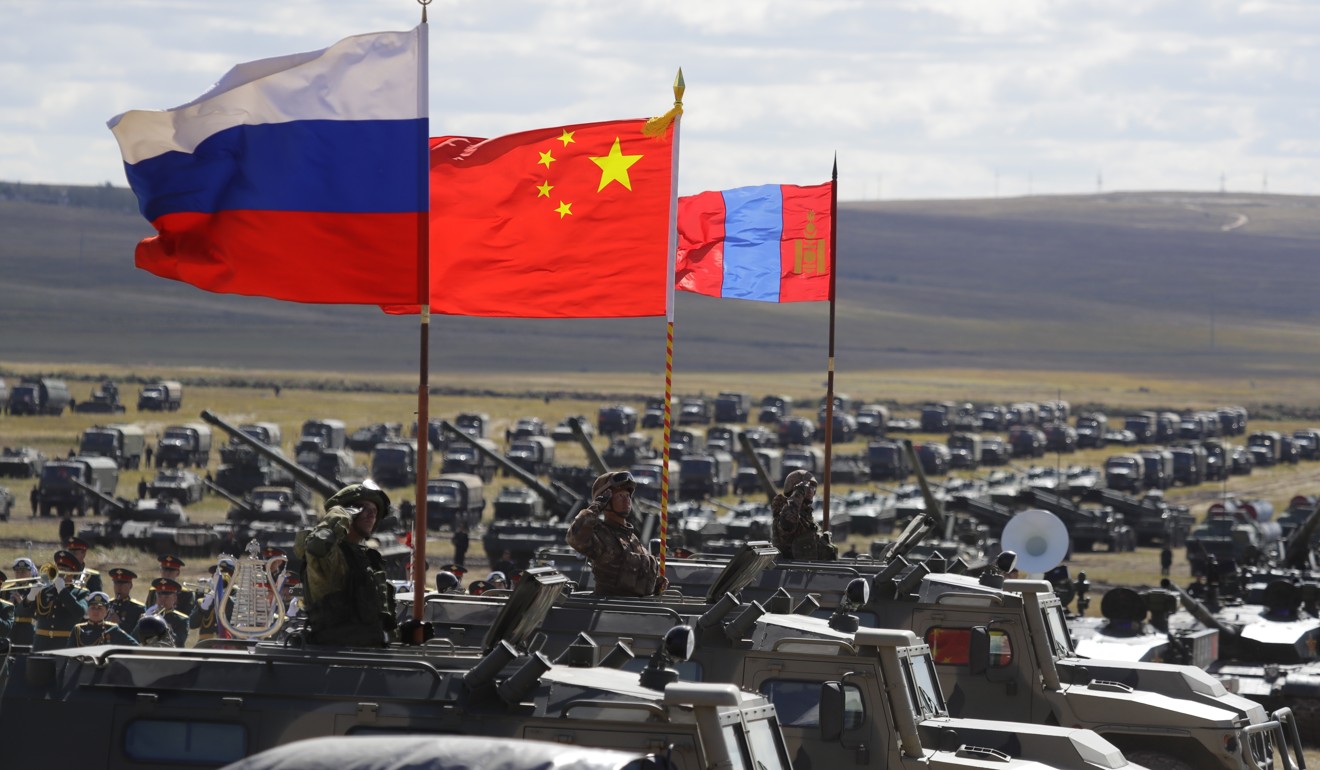BY ALEXANDER LUKIN
 The involvement of Chinese troops and military hardware in Russia’s recent military exercises in the Russian Far East and Siberia – its largest drills since 1981 – has sparked new interest in the rapprochement between Moscow and Beijing. The West reacted in predictable fashion, with some observers claiming that Russia and China had long been allies and were now preparing for war with the United States, and others dismissing their growing closeness as “a shallow partnership of convenience”.
The involvement of Chinese troops and military hardware in Russia’s recent military exercises in the Russian Far East and Siberia – its largest drills since 1981 – has sparked new interest in the rapprochement between Moscow and Beijing. The West reacted in predictable fashion, with some observers claiming that Russia and China had long been allies and were now preparing for war with the United States, and others dismissing their growing closeness as “a shallow partnership of convenience”.
Both positions justify the policy of the US and its allies. The first serves the interests of those who advocate a military build-up and increased defence spending to counter an imaginary military threat, while the second justifies levelling sanctions and trade pressure against both countries simultaneously – arguing, meanwhile, that such an approach does not impel them to form an anti-US alliance.
In fact, relations between Moscow and Beijing have been improving steadily for more than a quarter of a century. Although they quarrelled in the 1960s and 1970s, the two countries have been growing closer since the final years of the Soviet Union and have now reached the point of “strategic partnership and interaction”.
The very fact that China changed leaders several times during that period and Russia transformed its entire political system indicates that the Moscow-Beijing rapprochement is based not on transient ideology or political goals, but on a convergence of national interests.
Globally, both countries favour preserving the post-second world war system of international law based on the United Nations and its Security Council. This is understandable given Russia and China, even together, are weaker than the US and its allies, but their Security Council veto puts them on a par with the US and gives them control over UN decisions. In this sense, the US – kept in check by international law – is a revolutionary force in international relations, while Russia and China are conservatives.
 The relationship between Russia and China has now reached a level of ‘strategic partnership and interaction’. Photo: AFP
The relationship between Russia and China has now reached a level of ‘strategic partnership and interaction’. Photo: AFP
Moscow and Beijing advocate multipolarity – a world based not on the dominance of a central power, but on the interaction of several major centres. In such a world, they could play an important and independent role.
The two countries share common views on most regional conflicts: Iraq, Libya, Syria, and the Iranian and Korean nuclear problems. China has been Russia’s largest trading partner for the past seven years. Although Russia has a smaller share of China’s foreign trade, China purchases vital goods from Russia, such as weapons systems – which it cannot buy elsewhere – and raw materials, which it needs to diversify its supply chain. Finally, cooperation between their border regions plays a significant role in both countries’ development. Chinese President Xi Jinping’s decision to attend the Eastern Economic Forum in Vladivostok in early September underscored the importance of such cooperation.
Russia and China have developed an extensive infrastructure for cooperation, from annual summits between senior leaders to numerous intergovernmental commissions and lower-level contacts. Almost every Russian region, city, university, and research centre now has permanent “sister” relations with a counterpart in China. Neither Russia nor China maintains a similar degree of cooperation with any other country.
Many foreign observers spread myths about Russian-Chinese relations in an attempt to bring the two into conflict or else deny the reality of their rapprochement. The two countries also have internal detractors. Most naysayers in Russia belong to the political opposition – whether pro-Westerners who view China as a hostile communist dictatorship or arch-conservatives who consider all foreign powers inimical. In China, they are either pro-Western advocates of liberalism or nationalists who consider Russia a weak state that should now be punished for the way its tsarist regime once humiliated China. These forces are still marginal in both countries, however, and play no significant role.
 Chinese President Xi Jinping and Russian counterpart Vladimir Putin in Beijing. The countries have developed an extensive infrastructure for cooperation, which includes annual summits between senior leaders. Photo: Reuters
Chinese President Xi Jinping and Russian counterpart Vladimir Putin in Beijing. The countries have developed an extensive infrastructure for cooperation, which includes annual summits between senior leaders. Photo: Reuters
The most common of these myths suggest China is expanding demographically into Eastern Russia, the two countries are at odds in Central Asia, and Beijing is trying to intimidate Moscow with its disproportionate economic might. None of these is true. In fact, fewer Chinese citizens live in Russia’s eastern regions than in Moscow, and most of them are in the country legally. What’s more, most people in northern China try to relocate not to Russia, but to southern China, for the better climate and living conditions.
Although China’s influence in Central Asia will inevitably grow, it poses much less of a threat to Russia’s interests than the destructive influence of the US. US policy for the region has the potential to breed the same sort of chaos as it did in Libya and Iraq. Moscow and Beijing work closely in Central Asia, particularly within the Shanghai Cooperation Organisation and the expanding mechanism for linking China’s Silk Road Economic Belt with the development of the Eurasian Economic Union – which consists of five former Soviet states, including Russia.
Of course, Russia finds the growing economic imbalance with China unpleasant and knows that it must work quickly to spur its own economic growth. But even if that gap continues to widen, it does not automatically increase the threat from China. After all, Canada does not fear the US, and Belgium has no worries about France. It all depends on the nature of bilateral relations between Russia and China, and for now, those relations are deepening.
This trend will continue, thanks in large part to the extremely hostile approach the US has taken towards both countries. This is not about US President Donald Trump or any other leader; Trump is only a symbol of the larger situation. The US has long been accustomed to profiting from its global economic dominance, but its influence is declining, even as the relative influence of other centres of power, including Russia and China, is growing. Washington finds it especially irritating that the collapse of the Soviet Union did not mark the “end of history” and the ultimate triumph of the US, but only the start of new and far less advantageous global developments.
 Russia and China are growing closer due to the extremely hostile approach the US has taken towards both countries. Photo: AP
Russia and China are growing closer due to the extremely hostile approach the US has taken towards both countries. Photo: AP
In an effort to maintain its position in the world, the US continues to behave like a hegemon and becomes increasingly embittered by the resistance it encounters. The current period – in which the US must learn painful lessons in the school of multipolarity – will be particularly dangerous. Russia and China are the main instructors in this school, a role that strengthens the bonds between them.
These ties, however, are unlikely to lead to a formal alliance that includes mutual defence obligations. There are three historical precedents for such alliances, and all three failed. Obviously, Russia and China are just too large and too powerful to become shackled by such far-reaching mutual commitments.
In response to Western anti-Russian sanctions, Russia granted Chinese investors access to its energy sector, concluded deals for the sale of its most modern weapons, and established closer military cooperation with China.
Trump’s trade tariffs and Chinese countermeasures led to Beijing’s search for alternative suppliers of agricultural products such as soy. As a result, China might begin importing more soy from Russia and investing in soybean production in the Russian Far East. Many more examples exist.
Thus, Russia and China would have continued improving cooperation even in the absence of outside pressure, but the US sanctions and tariffs are actually serving to accelerate and deepen their rapprochement.
No comments:
Post a Comment